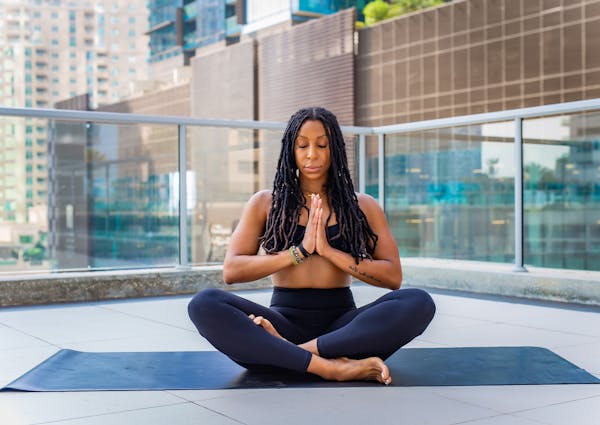Meditation is a powerful tool for improving mental and emotional well-being, but the key to gaining its benefits is consistency. Starting a meditation practice is simple, but keeping it consistent can be a challenge. With a few tips, you can build a regular meditation routine that fits into your daily life. In this guide, we’ll explore how to create and maintain a consistent meditation practice. Below is a quick summary of important steps to follow.
| Step | Focus Area | Benefit | Difficulty |
|---|---|---|---|
| Start Small | Time Commitment | Makes meditation manageable | Easy |
| Create a Routine | Consistency | Builds a daily habit | Moderate |
| Use Reminders | Accountability | Helps you stay on track | Easy |
1. Start Small and Build Slowly
If you’re new to meditation, it’s important to start small. Begin with just 5 to 10 minutes of meditation each day. Starting small makes the practice more manageable and less overwhelming. Once you feel comfortable, you can gradually increase the time to 15 or 20 minutes. Building slowly allows you to get used to meditation without feeling pressured to meditate for long periods right away. The most important thing is to make meditation a regular part of your day, even if it’s just for a few minutes.
2. Create a Routine
One of the best ways to build a consistent meditation practice is to create a routine. Pick a time of day that works best for you—whether it’s in the morning, during lunch, or before bed. Try to meditate at the same time every day, so it becomes part of your daily routine. You can also choose a specific place to meditate, such as a quiet corner in your home or a comfortable chair. Having a set time and place makes it easier to stick to your practice.
Tips for creating a routine:
- Choose a consistent time each day
- Find a quiet, comfortable space to meditate
- Stick to your routine, even on busy days
3. Use Reminders to Stay on Track
It’s easy to forget to meditate, especially when life gets busy. To help you stay on track, use reminders. You can set an alarm or a notification on your phone to remind you when it’s time to meditate. Another option is to leave a sticky note in a place you’ll see, such as on your desk or bathroom mirror. These little reminders will help keep meditation a priority, even when you have a lot going on.
4. Focus on Quality, Not Quantity
When building a meditation practice, it’s more important to focus on quality rather than the amount of time you meditate. Even short sessions of meditation can be effective if you are fully present and focused. Instead of worrying about how long you can meditate, concentrate on the experience itself. Pay attention to your breath, body, and thoughts, and allow yourself to relax. Quality meditation will help you feel the benefits more deeply and keep you motivated to continue.
5. Be Patient and Kind to Yourself
Consistency takes time, and it’s normal to miss a session or have days when meditation feels challenging. If you skip a day or find it hard to focus, don’t be too hard on yourself. Meditation is a journey, and there will be ups and downs. Be patient with yourself and return to your practice the next day. Self-compassion is a key part of meditation, and it’s important to carry that same kindness into your approach to building a regular practice.
6. Track Your Progress
Tracking your progress can help you stay motivated and see how far you’ve come. You can keep a journal where you note how often you meditate, how long each session lasts, and how you feel afterward. Tracking your practice helps you stay accountable and gives you a sense of accomplishment. It’s also a great way to reflect on the benefits you’re experiencing, such as reduced stress, improved focus, or better emotional balance.
Conclusion
Building a consistent meditation practice takes time, but with small steps and patience, you can make it a regular part of your life. Start with just a few minutes a day, create a routine that fits your schedule, and use reminders to stay on track. Focus on quality meditation, be kind to yourself, and track your progress to stay motivated. With commitment and patience, meditation will become a powerful tool for improving your mental and emotional well-being. Stick with it, and enjoy the benefits of a calm and focused mind!

